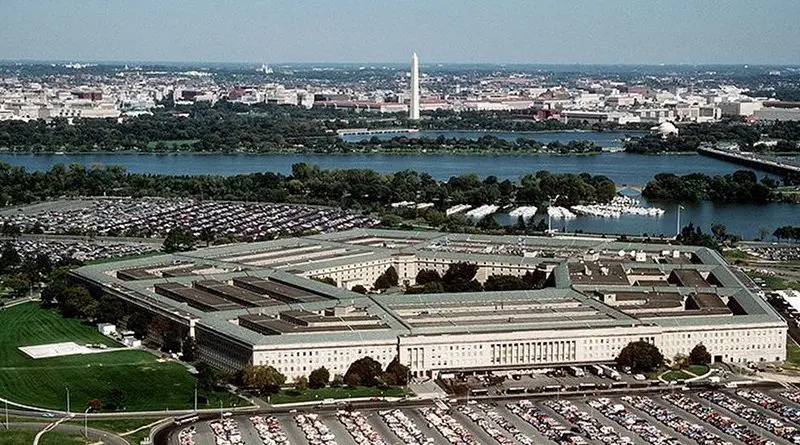What US’ New Defense Budget Means For The Middle East – OpEd
By Arab News
By Maria Maalouf*
A week after Congress passed the US defense budget for the fiscal year 2023, President Joe Biden last month signed the budget — which amounted to $858 billion, exceeding his proposal by $45 billion — into law. It offers vital benefits, such as enhancing access to justice for military personnel and their families, as well as powers critical to supporting national defense, foreign affairs and homeland security.
The Defense Department’s massive final budget contains several notable provisions related to Middle Eastern security.
The secretary of defense has called for the creation of a strategy aimed at supporting regional air defense networks in the Middle East to protect the US’ allies and partners from missile attacks from Iran and its proxies. The aim is to implement an integrated air and missile defense structure to protect the people, infrastructure and territory of these countries.
The defense budget, known as the National Defense Authorization Act, also legislates a requirement for the US to establish an interagency strategy to disrupt and dismantle narcotics production, trafficking and affiliated networks linked to the Assad regime in Syria.
According to the American Coalition for Syria, Bashar Assad has turned Syria into a drug state, as traffickers produce and distribute huge quantities of Captagon pills. This is currently the most in-demand drug in the Middle East and neighboring Mediterranean countries, with more than 40 tons seized last year. In 2021, the Captagon trade generated an estimated $5.7 billion in revenue for the Syrian regime, allowing Assad to circumvent the sanctions aimed at denying him access to hard currency.
This year’s National Defense Authorization Act also amended the current required report on Iran to include the proxy groups associated with Tehran, particularly those assessed as being prepared to carry out terrorist operations on its behalf or in response to a military attack by another country related to Iran.
None of the amounts authorized under this act may be used to facilitate the transfer of currency platforms or currencies to the government of Iran. It also prohibits the allocation or transfer of any authorized funding to the Iraqi Badr Organization, which has close ties to Iran. This sends a strong warning to the Badr Organization that Washington is closely monitoring its activities and that it could face sanctions in the future.
The act demanded a report that will include a detailed assessment of whether the proliferation of Iranian weapons, particularly of drones, increased following the end of the UN arms embargo on Iran in October 2020.
Given that Israel is one of the staunchest friends and allies of the US, and that it faces a number of potential challenges at present, including continuing threats from Iran, the act affirmed the amendment and expansion of cooperation between the US and Israel to counter aerial systems, including directing energy capabilities and authorizing a $15 million increase in funding — to $40 million in total — to support it. The law also provides $80 million to the government of Israel to purchase components for the Iron Dome short-range missile defense system, as well as providing $40 million for the so-called David’s Sling weapons system.
Based on the role played by the multinational forces in promoting stability and maintaining peace in the Sinai Peninsula, the US must continue to maintain its strong support. And the Department of Defense was also requested to “seek to expand cooperation with the Jordanian Ministry of Defense in military cybersecurity activities,” to include the establishment of a regional center for cybersecurity, bilateral activities and training in the field of cybersecurity, in addition to efforts aimed at effectively defending military networks, infrastructure and systems, and eliminating malicious cyber activities.
The act affirmed that the US must act decisively against counterintelligence threats posed by foreign commercial spyware, as well as individuals who lead entities that sell foreign commercial spyware and who are reasonably believed to be engaging in, or presenting a significant risk of, engaging in activities contrary to national security or the interests of US foreign policy.
It can be said that the items related to the countries of the Middle East in the national defense budget for the year 2023 are remarkably consistent with the existing US foreign policy orientation regarding reducing the country’s involvement in the region and turning toward Asia. At the same time, it commits to the campaign to combat Daesh to preserve US interests and maintain relationships with regional partners and allies to ensure regional stability and protect the US presence in the region from any potential threats, whether from Iran, its proxies or other terrorist groups.
- Maria Maalouf is a Lebanese journalist, broadcaster, publisher and writer. She has a master’s degree in political sociology from the University of Lyon. Twitter: @bilarakib

